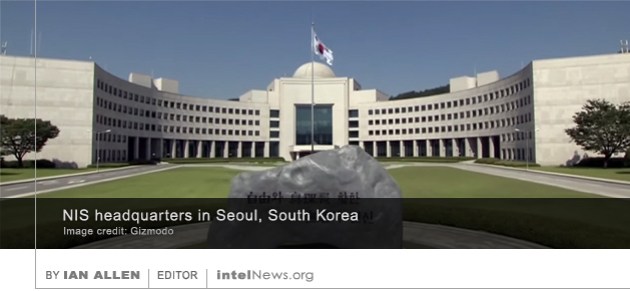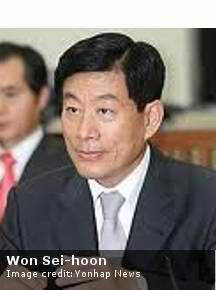Three former South Korean spy chiefs charged with illegally diverting secret funds
November 20, 2017 Leave a comment
 A South Korean prosecutor has charged three former directors of the country’s spy agency of secretly diverting funds from the agency’s clandestine budget to aid the country’s disgraced former President, Park Geun-hye. The three men, Nam Jae-joon, Lee Byung-kee and Lee Byung-ho, headed South Korea’s National Intelligence Service (NIS) between 2013 and 2016, when Mrs. Park was head of state. The conservative politician was impeached late last year, following accusations of corruption, bribing and extortion. In March this year, Mrs. Park’s government was brought down and she is currently in prison, awaiting trial. Her successor in the presidency, leftist politician Moon Jae-in, was elected after pledging to combat corruption in South Korea’s political inner circle.
A South Korean prosecutor has charged three former directors of the country’s spy agency of secretly diverting funds from the agency’s clandestine budget to aid the country’s disgraced former President, Park Geun-hye. The three men, Nam Jae-joon, Lee Byung-kee and Lee Byung-ho, headed South Korea’s National Intelligence Service (NIS) between 2013 and 2016, when Mrs. Park was head of state. The conservative politician was impeached late last year, following accusations of corruption, bribing and extortion. In March this year, Mrs. Park’s government was brought down and she is currently in prison, awaiting trial. Her successor in the presidency, leftist politician Moon Jae-in, was elected after pledging to combat corruption in South Korea’s political inner circle.
As part of his anti-corruption campaign, Mr. Moon has overseen the purging of numerous senior officials from the NIS, after the agency admitted that it tried to influence the outcome of the 2012 presidential election in favor of Mrs. Park. In the latest round of corruption charges, the three former directors of the NIS are accused of funneling payments of between $45,000 and $91,000 a month to the office of the president. The cash allegedly came from what the prosecutors described as “special operational funds” and was meant for highly secret undercover operations. As such, it was not subject to parliamentary oversight or annual audits, according to prosecutors. The secret funds were allegedly used by Mrs. Park for bribes in exchange for political favors, according to the indictment.
Prosecutors claim that the indictments of the three former NIS chiefs reveal high-level collusion between Mrs. Park’s conservative Liberty Korea Party, also known as the Grand National Party, and the spy agency. Earlier this month, two presidential aides who served under Mrs. Park were arrested for transferring the cash payments in briefcases from the NIS to the president’s office. Two of the three former NIS directors, Nam Jae-joon and Lee Byung-kee were denied bail and are currently in jail. The third, Lee Byung-ho, was not deemed to be a flight risk and remains free while preparing his defense.
► Author: Ian Allen | Date: 20 November 2017 | Permalink







